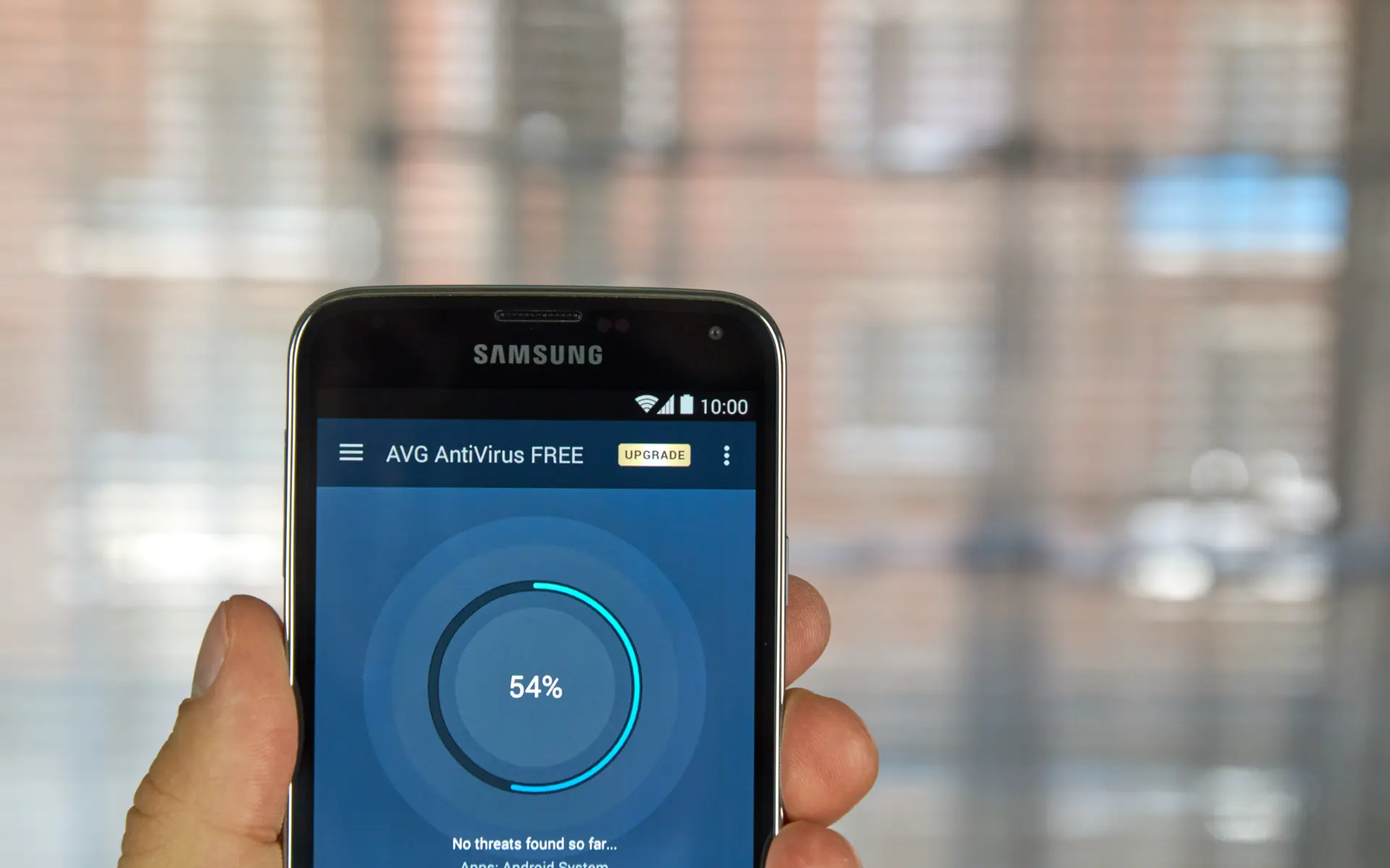Table of contents
- What is a free antivirus and what does it really offer?
- Free antivirus for PC: best options in 2025
- Free antivirus for Android: protecting mobile devices
- Free antivirus for iPhone: is it really necessary?
- How to choose the best free antivirus for you
- When to upgrade to a paid antivirus
- Free antivirus and safe practices: an indispensable combo
Cyber security is no longer an optional feature but an essential requirement in today’s digital world.
With the exponential rise of online threats, every device—from computers to smartphones—needs continuous protection against viruses and malware.
Fortunately, it is now possible to install a free antivirus that provides effective basic protection without spending a dime. This article will guide you through the best free antivirus options for 2025, covering all operating systems: Windows, macOS, Android, and iOS.
We’ll explore how they work, what extra features they offer, and when it might be worth upgrading to a premium version.
What is a free antivirus and what does it really offer?
A free antivirus software is designed to detect, block, and remove viruses, trojans, ransomware and other types of malware at no cost. These are often simplified versions of the paid products from the same vendor, but that doesn’t mean they are ineffective. On the contrary, today’s best free antivirus programs offer reliable real-time protection for personal or home use.
In general, a good free antivirus:
- detects and removes known malware;
- scans files when accessed or executed;
- analyzes downloads and connections to suspicious websites;
- offers on-demand antivirus scans;
- protects your home Wi-Fi network from intrusions.
What may be missing compared to premium versions are advanced features like parental control, custom firewalls, integrated VPNs, or priority customer support. However, for many users, these extras may be unnecessary.
Free antivirus for PC: best options in 2025
For Windows users, finding the best free antivirus means securing your system daily without slowing down performance. Here are some of the most highly rated options:
Avast Free Antivirus
One of the industry’s historic names, Avast Free Antivirus offers solid and lightweight protection with an intuitive interface. It includes:
- real-time protection against cyber threats;
- behavioral analysis of suspicious activities;
- Wi-Fi scanner to check network security.
AVG Antivirus Free
Owned by the same group as Avast, AVG stands out for its lightweight design and ease of use. It also:
- blocks dangerous email attachments;
- protects web browsing.
Microsoft Defender
In many cases, the best free antivirus for PC is already built into the system. Microsoft Defender, integrated with Windows 10 and 11, provides:
- constant defense against malware and ransomware;
- scheduled antivirus scans;
- automatic updates.
Microsoft has made great strides in cyber security, and for users with safe browsing habits, it may be more than enough.
Free antivirus for Android: protecting mobile devices
Android smartphones are increasingly targeted by malware, phishing, and fraudulent apps. A reliable free antivirus for Android is essential for keeping personal data safe, especially since many users access banking, email, and social media from their phones.
Bitdefender Antivirus Free
This antivirus is known for its light footprint and reliability. It won’t slow down your device and performs automatic antivirus scans when needed. It offers excellent basic protection without unnecessary features.
Sophos Intercept X for Mobile
A free option aimed at more advanced users, with:
- app monitoring;
- call and SMS blocking;
- safe browsing protection for dangerous websites.
Avira Security for Android
Avira provides great value for free, including:
- antivirus scanner;
- real-time protection;
- app privacy checks;
- Wi-Fi network scanner.

Free antivirus for iPhone: is it really necessary?
When discussing free antivirus for iPhone, the topic changes. iOS is designed to sandbox each app and prevent deep system access by third-party software. This makes it very difficult—even for malware—to damage the device.
However, security apps still offer protection against indirect threats, such as phishing via email or malicious websites.
Lookout Mobile Security
Provides solid basic protection, including:
- alerts for personal data breaches;
- app analysis and behavior monitoring;
- contact data backups.
Avira Mobile Security
Also available for iOS, Avira adds:
- anti-phishing protection;
- Wi-Fi network security checks;
- data leak verification.
In short, a free antivirus for iPhone won’t remove malware in the traditional sense, but it will help you avoid modern cyber threats that spread through browsers, messages, or email.
How to choose the best free antivirus for you
A common question is: what’s the best free antivirus?
The answer depends on your operating system, your digital habits, and how you use your devices. If you download lots of files, visit unknown sites, or use public networks, you need stronger real-time protection. For basic usage, a free antivirus download may be enough.
One important factor to consider is system performance. Some free tools consume a lot of resources, significantly slowing down your computer or smartphone. The best ones remain lightweight and unobtrusive.
When to upgrade to a paid antivirus
A free antivirus software is a great starting point, but it can be limited in certain cases:
- when handling sensitive data (businesses, freelancers);
- if you need to manage multiple devices from one dashboard;
- if you require extra features like VPN, parental control, or online banking protection.
In these cases, upgrading to a premium version ensures more advanced and customizable cyber security.
Free antivirus and safe practices: an indispensable combo
Even the best free antivirus can’t work miracles if the user behaves recklessly. Here are a few good practices:
- don’t download software from untrusted sites;
- keep your OS and apps up to date;
- use strong passwords and two-factor authentication;
- avoid clicking suspicious links in emails or social media;
- use a VPN on public networks.
In short, free antivirus protects, but the first line of defense is still you.
Conclusion
In today’s digital world, protecting against cyber threats is essential.
Fortunately, you don’t always need to spend money. There are many free antivirus downloads that offer full protection for most users, whether on PC or mobile devices. The key is to choose the best free antivirus for your needs and combine it with smart cyber security habits.
Questions and answers
- Is a free antivirus really effective?
Yes, many free antivirus programs provide good basic protection against common online threats. - What’s the best free antivirus for PC in 2025?
Avast, AVG, and Microsoft Defender are among the best free antivirus solutions currently available. - Do iPhones need an antivirus?
iOS is more secure than other operating systems, but apps like Avira or Lookout help prevent phishing and data theft. - What’s the best free antivirus for Android?
Bitdefender, Sophos, and Avira offer excellent antivirus scans and real-time protection. - Can I use a free antivirus forever?
Yes, although you may receive upgrade prompts offering extra features. - Do free antivirus tools slow down the computer?
Some do, but the best are designed to be lightweight and efficient. - Do free antivirus programs protect Wi-Fi networks?
Many include a Wi-Fi scanner, which helps detect intrusions. - Is it safe to download a free antivirus?
Yes, if downloaded from the official website or trusted sources. - What should I do if malware is detected?
Follow the software’s instructions to remove or quarantine it. Some threats may be blocked automatically. - Do free antivirus tools protect against ransomware?
Yes, the best free antivirus software includes protection against ransomware, although premium versions are more comprehensive.
